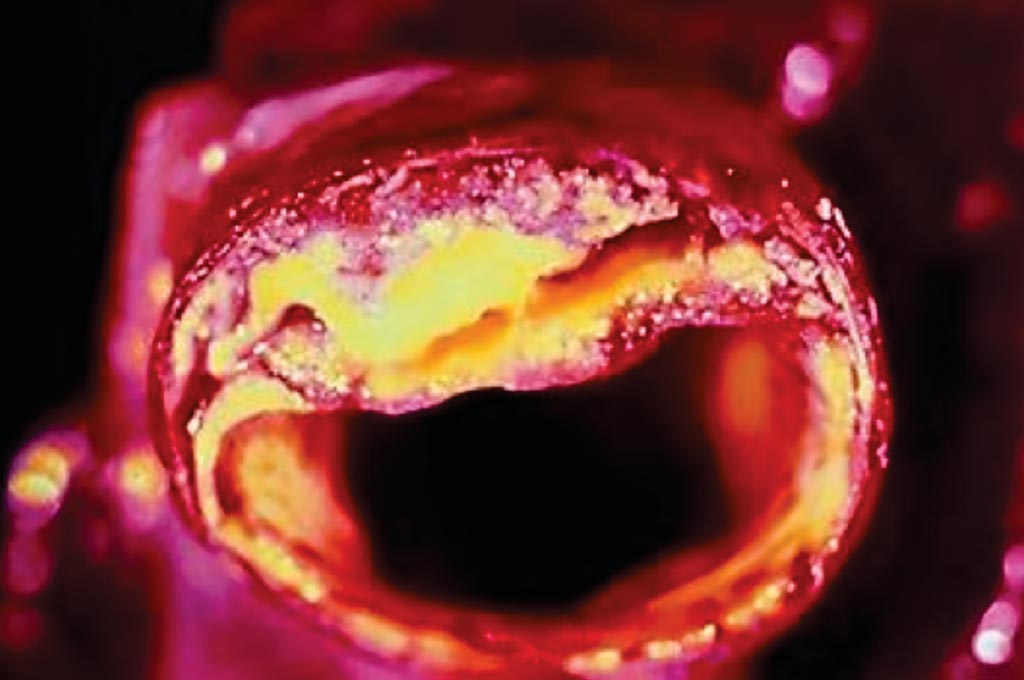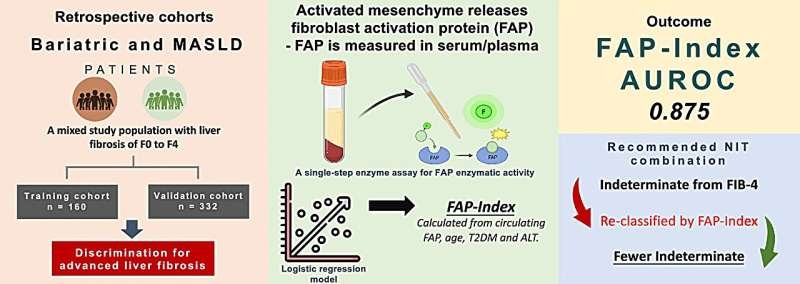Thyroid Hormone Level Identifies Risk of Atherosclerosis
By LabMedica International staff writers
Posted on 21 Apr 2017
High levels of thyroid hormone in middle-aged and older people are linked to higher risk for atherosclerosis, a condition in which arteries become clogged up and which is a major cause of heart attacks and strokes.Posted on 21 Apr 2017
Atherosclerosis is a disease in which plaque builds up on the inside walls of arteries, causing them to thicken and harden. The plaque consists of fats, waste products from cells, cholesterol, calcium, and a blood-clotting material called fibrin. Another potential danger is that a piece can break off or a blood clot can form on the plaque. These can block the artery and cause heart attack or stroke.

Image: A cross-section of an artery with atheroma visible in the upper section (Photo courtesy of Dr. Jules Y. T. Lam, MD).
Scientists at the Erasmus University Medical Center analyzed data collected over a median follow-up of eight years on 9,231 people whose median age was 64.7 years. The analysis took account of a range of factors that could affect the results, including age, sex, body mass index (BMI), cholesterol, triglycerides, blood pressure, diabetes, alcohol consumption, smoking, and medications for lowering blood pressure and lipids. During the follow-up, there were 1,130 atherosclerotic events and 580 atherosclerotic deaths in the group.
The analysis revealed that higher levels of thyroxine, also known as free T4 (FT4), were linked to higher risk of atherosclerotic events and deaths independently of known cardiovascular risk factors. Analysis also showed that higher FT4 levels were associated with increased risk of subclinical atherosclerosis, a condition in which plaque build-up can be detected, but it has not led to cardiovascular events. Higher FT4 levels were associated with higher risk of first-time hard atherosclerotic cardiovascular (ASCV) event and also, FT4 levels were positively associated with having a high Coronary calcium scans (CAC) score.
Arjola Bano, MD, DSc, the lead investigator of the study, said, “These findings suggest that thyroid hormone measurement can help identify individuals at risk for atherosclerosis and may have future implications for the prevention of atherosclerotic morbidity and mortality. Coronary heart disease and stroke remain a leading cause of mortality worldwide, despite advances in prevention and treatment. Therefore, identifying additional modifiable risk factors for atherosclerosis is of major importance.” The study was presented at the 99th Endocrine Society Meeting held March 31-April 4, 2017, in Orlando, FL, USA.














